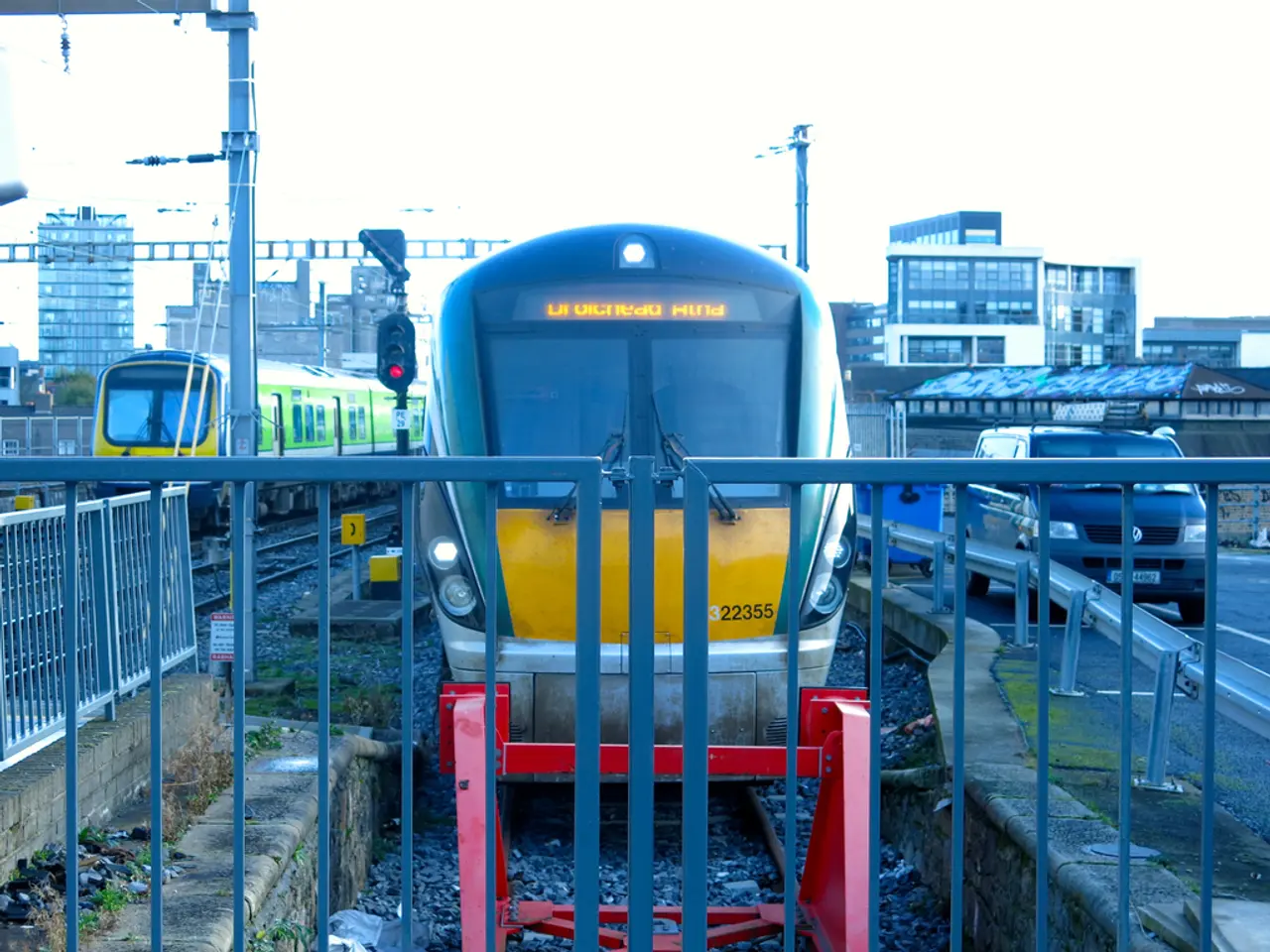Reemerging apprehensions over Russia's actions spur the resurgence of the Iron Rhine
The Iron Rhine railway, a historic link between Belgium's Port of Antwerp and Germany's Ruhr industrial region, is set to be revived due to increasing security concerns over Russia. This strategic move, led by Belgium's Prime Minister Bart De Wever, aims to enhance EU military mobility and secure better logistics amidst the escalating tensions [1][2][3][4].
The railway, dating back to the 19th century, was strategically vital during and after World War II. Its revival is now seen as critical for improving the rapid deployment of troops and military equipment in the event of a Russian threat, particularly due to bottlenecks in current rail infrastructure [1][2][3][4].
The move is driven by growing anxieties that existing rail corridors are congested and ill-equipped to handle heavy military transport. The Iron Rhine railway, if restored, would provide an additional, more direct route for military and commercial freight, helping to reduce logistical vulnerabilities in Western Europe, especially if rapid troop movements are necessary to defend the Baltic states or other sensitive areas [4].
However, the Netherlands, despite being a key player, is somewhat reluctant. Economic competition and past environmental concerns have contributed to this reluctance. The Netherlands fears that the project could strengthen Antwerp's port at the expense of Rotterdam, which benefits from the parallel Betuwe freight line connecting to Germany. Analysts suggest that EU or NATO funding, with €17 billion proposed for military mobility infrastructure from 2027, could convince the Dutch to lend their support for restarting the Iron Rhine railway [1][2][3].
Germany generally supports the Iron Rhine railway but faces engineering challenges with the Aachen section. The Belgian transport ministry considers the project to be political, with Thomas De Spiegelaere, spokesperson for the ministry, stating that the project is indeed political in nature. The discussions about reactivating the Iron Rhine railway have stalled in the past due to environmental costs, but the military angle has brought it back into focus [1][2][3].
Herman Welter, a railway expert at the Gazet van Antwerpen newspaper, believes that the project will proceed with EU funding. The revival of the Iron Rhine railway is not just about military mobility; it also promises to bolster trade within the European Union [1][2][3].
References:
- Belgium, Netherlands and Germany to revive Iron Rhine railway
- Iron Rhine railway: EU military mobility and logistics concerns
- Iron Rhine railway: A strategic move amidst Russia concerns
- Iron Rhine railway: A new route for military and commercial freight
The increasing concerns over Russia and war-and-conflicts have sparked discussions about reviving the Iron Rhine railway, a political move aimed at enhancing EU military mobility and logistics amidst the escalating tensions [1][2][3][4]. This railway, with its historical significance during and after World War II, is considered vital for improving the rapid deployment of troops and military equipment, particularly due to bottlenecks in current rail infrastructure [1][2][3][4].






